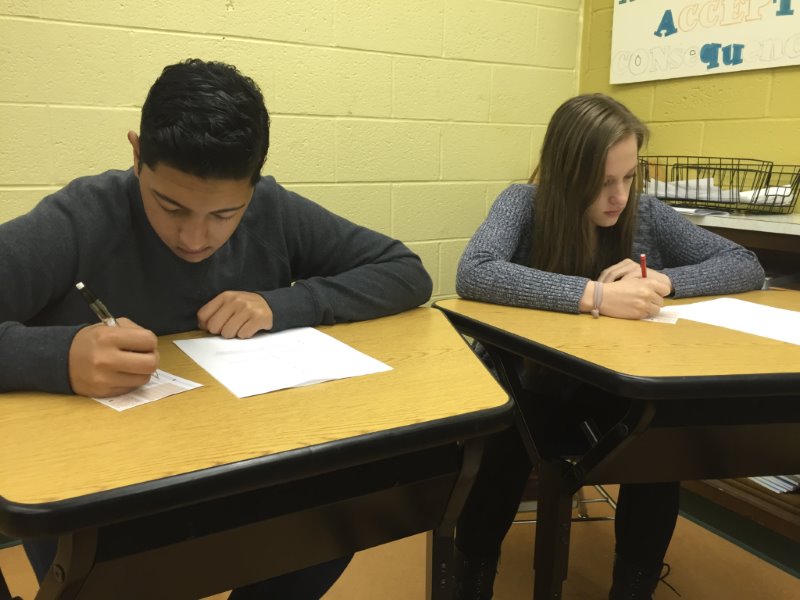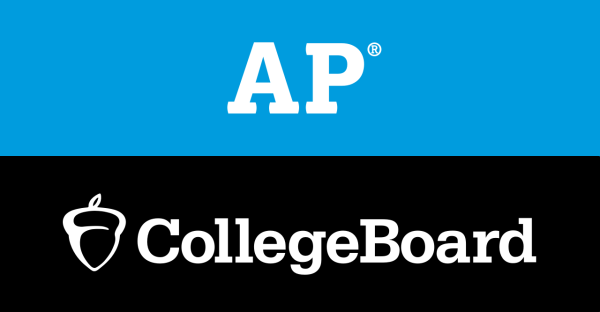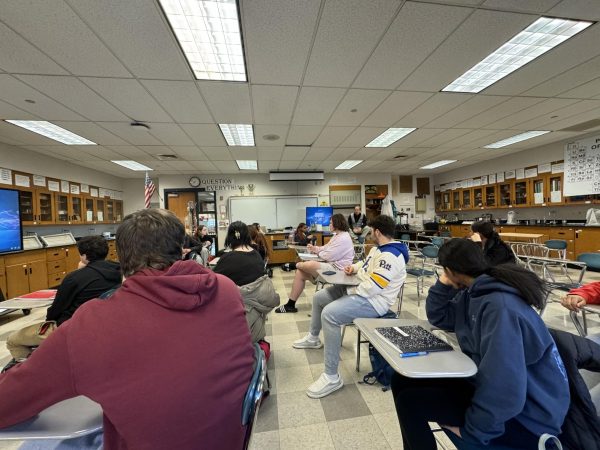EDITORIAL: Bounded by the bubbles- Why teaching to a test limits learning
BUBBLING ANSWERS: North Penn High School students Katja Pennypacker (right) and Dillin Bett (left) take a test during class. Multiple choice tests and test prep have, in recent years, become an increasingly prevalent focus in America’s classrooms.
January 15, 2015
I absolutely love going off of topic during instructional time in the classroom. By allowing students to explore beyond the curriculum, teachers not only cultivate creativity, but also spark interest. This type of spontaneity, which few educators permit, illustrates the importance and true meaning of education.
Students don’t attend school to learn how to take a test, memorize select facts about various subjects, or sit in boring classrooms all day. Through fundamental subjects, students are exposed to problem solving, reading strategies, analyzing techniques, and writing skills. While the information in the subjects is important, the way it’s presented to students tends to be more memorable.
For example, suppose two English classes finish reading A Tale of Two Cities, but each teacher decides to test the students’ knowledge differently. The class required to compose a prompted essay regarding the novel is more likely to illustrate a better understanding of a variety of skills than the class given a multiple-choice test. Not only do they exemplify a comprehension of the novel, but also the capability to use strong vocabulary, correct grammar, and important writing skills. Through thought provoking assignments, much like an essay, students reveal what they’ve truly learned instead of merely memorized.
If this is true, why are students given assignments that test memorization when they could be tested on pure knowledge? Instead of giving students several days’ notice of a major test, we should be preventing the common, detrimental memorization method by presenting more pop-quizzes or project-based assignments.
Ultimately, adhering to the boundaries of curriculum will prove to be consequential in three major ways:
1. Students will lose the value of education
When students resort to memorizing material instead of learning it, the meaning of education is lost. Education is supposed to be an adventure that promotes creativity, problem solving, and exploration. Limiting students to the curriculum boundaries will never enrich their passion for learning.
2. Teachers will lack passion
Passionate teachers are the impetus behind a successful classroom. Their immense love for learning often permeates throughout the classroom, leaving students feeling inspired. However, the passion of such educators will start to dwindle if they teach memorization to meet curriculum requirements.
3. Knowledge will no longer be power
We need to continue motivating our students to want to learn. Without this ‘hunger’ for knowledge, our students will lack the self-motivation, hard work, dedication, and passion needed to succeed in life. If we don’t encourage students to learn more than what the curriculum limits, the interest in education will be lost.
The art of learning needs to be taught in order for students to understand what education has to offer. If we effectively educate our students by using the most successful strategies, learning will continue to flourish throughout the world. Just as there isn’t one correct way to teach students, there isn’t one wrong way.




















